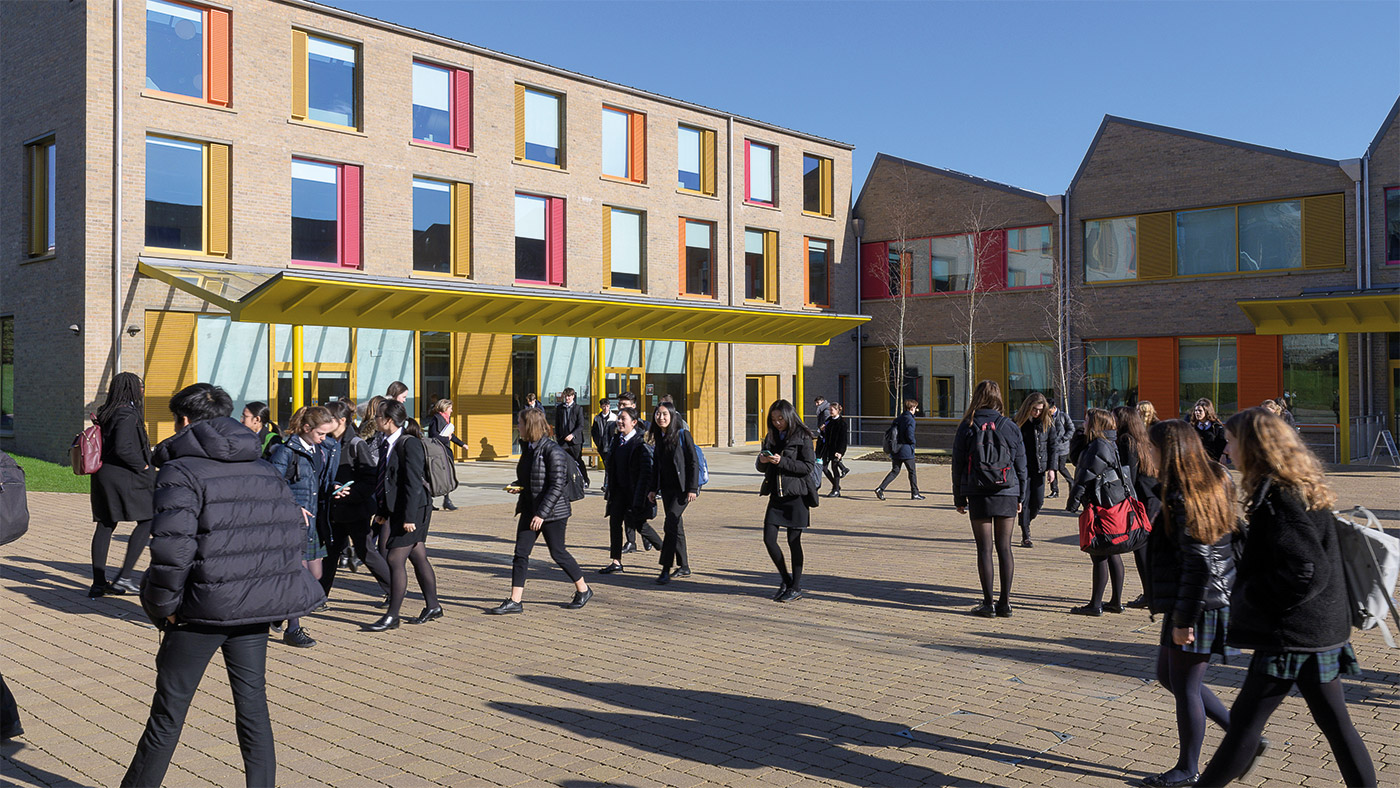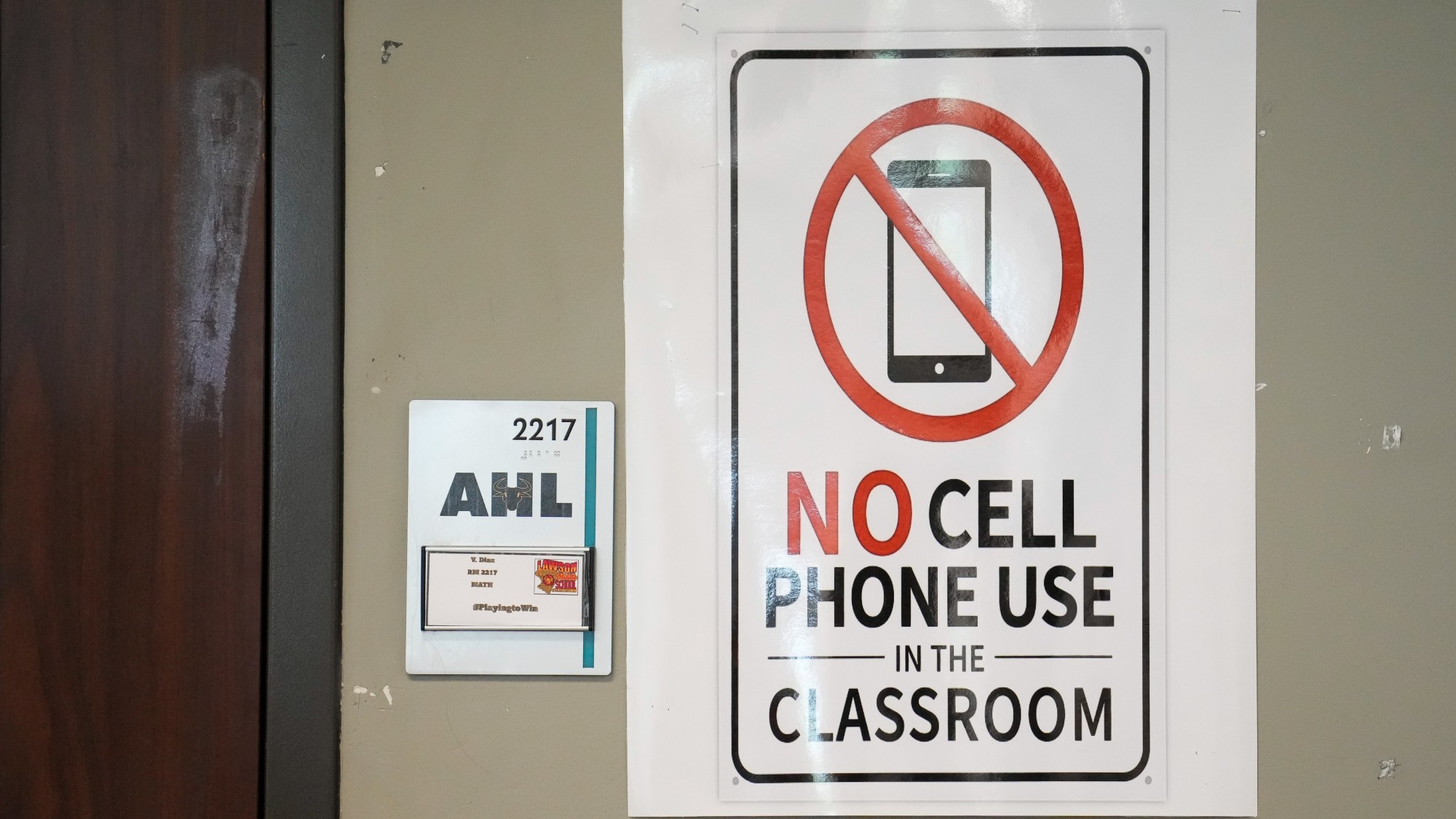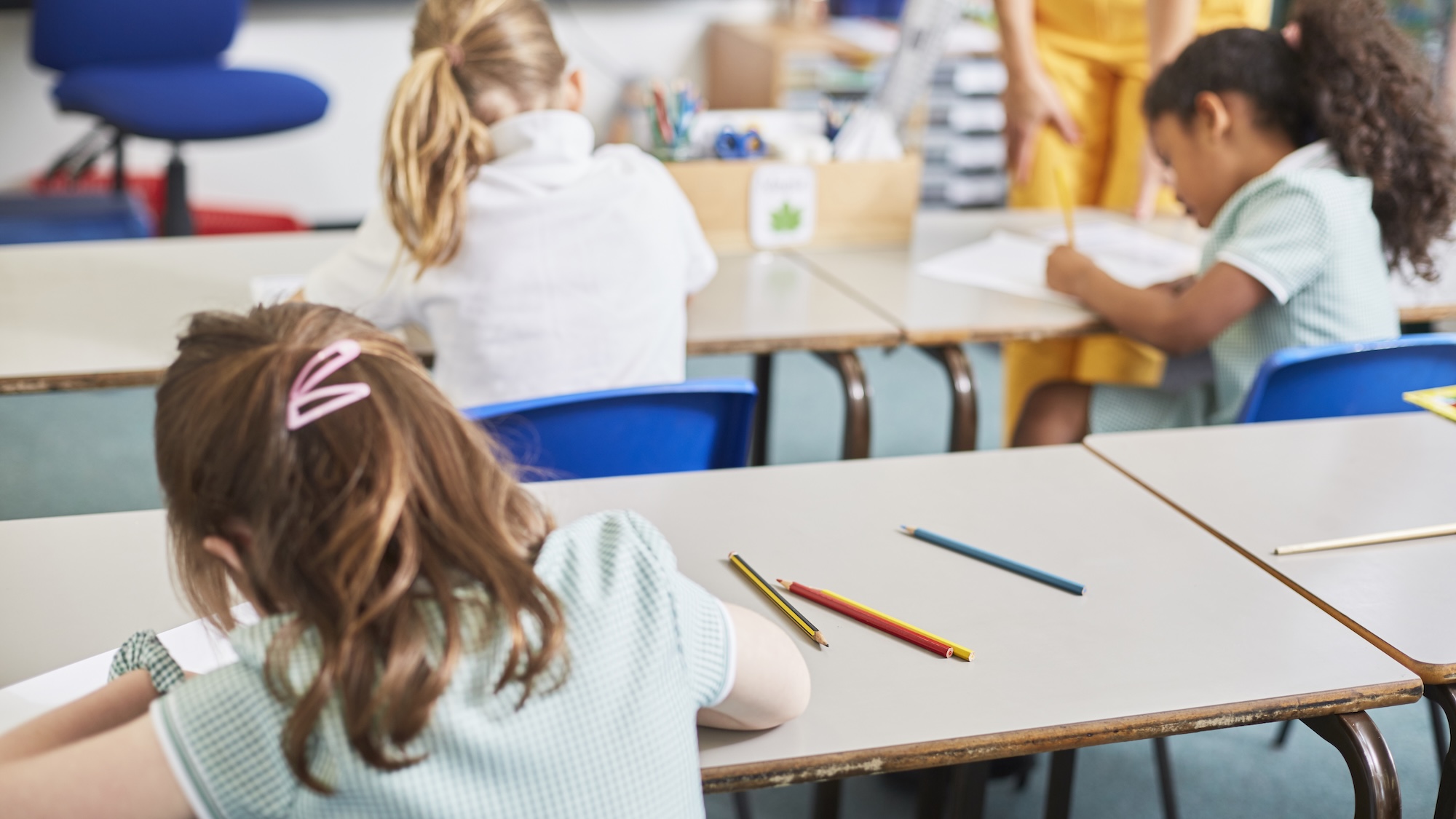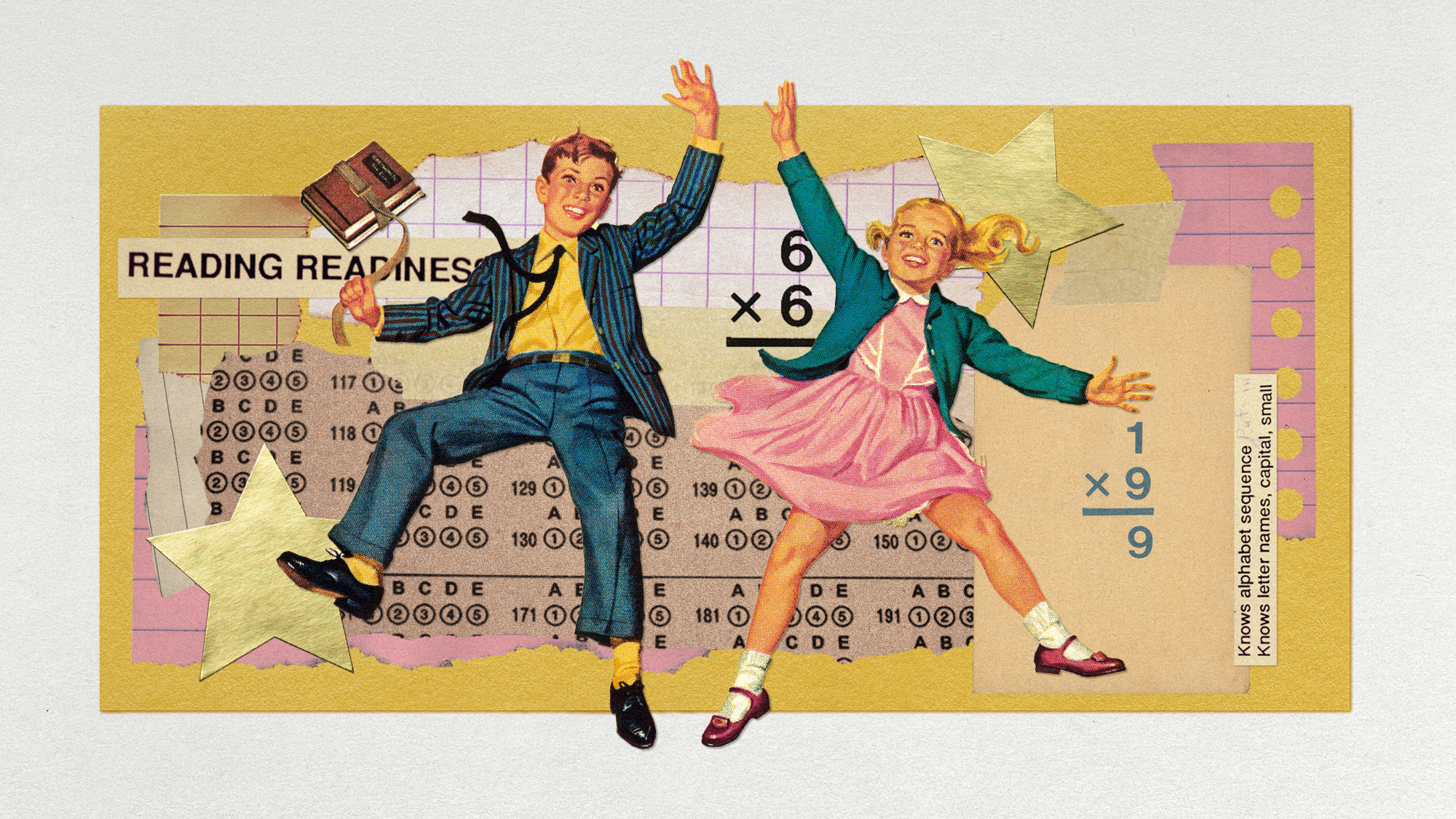The International Baccalaureate explained
Around 4,500 UK students take the IB Diploma in the sixth form every year. But what are its advantages and how does it compare to A levels?

A free daily email with the biggest news stories of the day – and the best features from TheWeek.com
You are now subscribed
Your newsletter sign-up was successful
- This article first appeared in The Week Independent Schools Guide 2021
What is the International Baccalaureate?
The International Baccalaureate (IB) organisation is a non-profit foundation that offers four challenging, world-class education programmes for students aged three to 19. In the UK, it is studied mainly by young people in years 12 and 13 as an alternative to A levels.
The most popular IB programme in the UK is the Diploma Programme, which comprises six subject groups studied over two years. These groups are: languages and literature, language acquisition, individuals and societies, sciences, mathematics and the arts. Students tend to study three subjects at advanced level, and three at standard level. They also do a theory of knowledge component to develop critical thinking and a 4,000-word extended essay.
The Week
Escape your echo chamber. Get the facts behind the news, plus analysis from multiple perspectives.

Sign up for The Week's Free Newsletters
From our morning news briefing to a weekly Good News Newsletter, get the best of The Week delivered directly to your inbox.
From our morning news briefing to a weekly Good News Newsletter, get the best of The Week delivered directly to your inbox.
There is also an IB Career-related Programme for 16 to 18-year-olds, which gives an academic grounding with career-related study.
How many students take it every year?
The IB is offered by 5,300 schools in 158 countries worldwide and is studied by 1.4 million students. There are currently 130 IB World Schools in the UK, 60 per cent of which are in the independent sector, and most of which offer the Diploma Programme. About 4,500 students in the UK take the Diploma or Career-related Programme every year.
Some UK independent schools offer only the IB while others have a twin track and give sixth formers the choice of IB or A levels.
A free daily email with the biggest news stories of the day – and the best features from TheWeek.com
How does it compare to A levels?
“Comparing the IB with A levels is like comparing apples with pears,” says James Dahl, master of Wellington College. A levels allow students to study three or four subjects in depth, while the IB is more about breadth and depth, allowing young people to continue studying subjects they enjoy alongside those that will shape their university degree or career choices. And while A levels are usually assessed with end-of-course (or terminal) examinations, the IB has a more multilayered approach, with coursework and other assessment elements as well as examinations.
“A levels are challenging and can have more meat to them if you choose a difficult combination of subjects, such as further maths and the sciences,” says Mr Dahl. “But the IB also offers challenging combinations and probably involves slightly more work over the two years because of the breadth of subjects, constant coursework and the extended essay. So, it’s not really a fair comparison to say one is harder than the other – they are just different.”
What do schools think of the IB?
Sevenoaks School has offered the IB Diploma to sixth formers for 40 years and is one of the most successful IB schools in the world. Headmaster Jesse Elzinga says the decision demonstrates the innovative, global and forward-looking tradition of the school.
“The IB offers breadth and a balanced education which other qualifications do not offer,” he says. “Every student at Sevenoaks takes English, maths, a science and a language. We believe that, at 15 or 16, pupils are too young to give up core subjects such as English or maths. The working world of today requires young people to be independent thinkers with good interpersonal skills.
“It is also too young to close doors to university by making decisions too soon. The IB allows young people to keep their options open while developing in their teenage years.
“Sevenoaks currently has students from 46 countries in the sixth form, and this is partly due to the IB and the global perspective and appreciation.”
What makes it popular with students?
Sixteen-year-old IB student Gabrielle Deegan is studying English, French and politics at higher level and Spanish, maths and environmental systems and societies at standard level at Wellington College and plans to study law at university. “I love the more varied scope of subjects,” she says. “We have a friendly rivalry at school between students doing A levels and the IB, and we each think we are doing the best set of qualifications. I absolutely love the IB. It has made me a more versatile thinker and learner.”
Rhiannon Durant, 19, completed the IB at Sevenoaks School and is now studying biochemistry at the University of Oxford.
“The IB is challenging but it prepared me for the style of learning at university, where self-discipline and initiative are essential for success,” she says. “The breadth of the programme is a unique asset, allowing me to continue studying subjects such as Mandarin, which I would have otherwise had to drop. The extended essay and coursework gave me confidence in expressing my ideas and analysing academic research. Most importantly, the IB developed my open-mindedness, international outlook and ability to think critically – essential skills for living in the modern world.”
Is the IB recognised by universities?
Very much so. “Universities are very positive about applicants holding the IB Diploma qualification because of its depth and breadth,” says Dr Peter Fidczuk, the International Baccalaureate organisation’s development and recognition manager for the UK and Ireland.
“The theory of knowledge component develops critical thinking and the extended essay is a 4,000-word research project, so IB students are already prepared and confident in approaching any assignments they will receive in year one of their undergraduate courses. To put it in a nutshell, they are ‘university ready’ and statistics show that they have a very high continuation rate from year one to year two of their degree courses as well as a high completion rate and excellent results.”
Is the IB restricted to older pupils?
No. The IB’s suite of qualifications includes the Primary Years Programme (PYP), a child-centred approach designed to build confidence, creativity and learning skills for three to 12-year-olds, and the Middle Years Programme (MYP) for 11 to 16-year-olds, which comprises eight subjects and focuses on approaches to learning, key and related concepts and independent learning projects.
-
 Corruption: The spy sheikh and the president
Corruption: The spy sheikh and the presidentFeature Trump is at the center of another scandal
-
 Putin’s shadow war
Putin’s shadow warFeature The Kremlin is waging a campaign of sabotage and subversion against Ukraine’s allies in the West
-
 Media: Why did Bezos gut ‘The Washington Post’?
Media: Why did Bezos gut ‘The Washington Post’?Feature Possibilities include to curry favor with Trump or to try to end financial losses
-
 The pros and cons of banning cellphones in classrooms
The pros and cons of banning cellphones in classroomsPros and cons The devices could be major distractions
-
 School phone bans: Why they're spreading
School phone bans: Why they're spreadingFeature 17 states are imposing all-day phone bans in schools
-
 Schools: The return of a dreaded fitness test
Schools: The return of a dreaded fitness testFeature Donald Trump is bringing the Presidential Fitness Test back to classrooms nationwide
-
 Send reforms: government's battle over special educational needs
Send reforms: government's battle over special educational needsThe Explainer Current system in 'crisis' but parents fear overhaul will leave many young people behind
-
 Education: Can public schools be religious?
Education: Can public schools be religious?Feature A Supreme Court seems ready to rule in favor of religious charter schools in Oklahoma, which could reshape public education
-
 America's academic brain drain has begun
America's academic brain drain has begunIN THE SPOTLIGHT As the Trump administration targets universities and teachers, educators are eying greener academic pastures elsewhere — and other nations are starting to take notice
-
 Schools' Send crisis: how can it be fixed?
Schools' Send crisis: how can it be fixed?Today's Big Question Government urged to reform support for children with special educational needs and disabilities and save councils from bankruptcy
-
 Unschooling: the radical education trend raising eyebrows
Unschooling: the radical education trend raising eyebrowsUnder the radar Some parents are letting their children lead their education